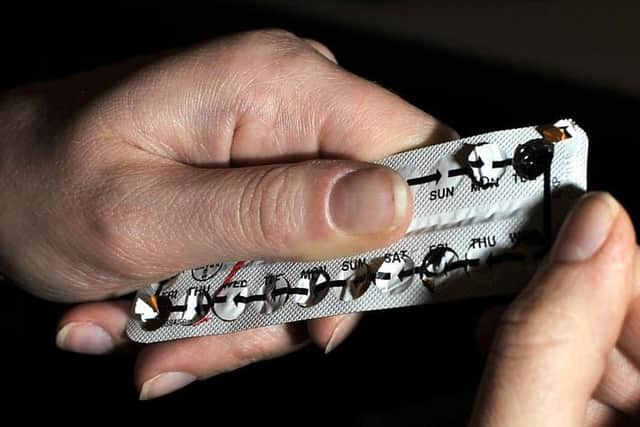Fewer people in Nottinghamshire used sexual health services during pandemic
and live on Freeview channel 276
Experts say widespread disruption to the NHS and changes in behaviour may have contributed to a significant drop in people contacting sexual health clinics during the pandemic.
NHS Digital figures show about 11,040 people approached sexual and reproductive health services in Nottinghamshire between April 2020 and March – down from 18,410 the year before.
Advertisement
Hide AdAdvertisement
Hide AdClinics in the area dealt with 23,415 contacts overall – with some people accessing sexual and reproductive health services more than once over the period.


A drastic fall in face-to-face appointments across England could have prevented people – especially teenagers – from accessing help and support with contraception, pregnancy and sexually transmitted infections, charities said.
The figures show just 43 per cent of consultations held by clinics in Nottinghamshire in 2020-21 were face-to-face, compared with 90 per cent in 2019-20.
Lisa Hallgarten, from sexual health charity Brook, said remote consultations could prove convenient for some, but highlighted difficulties in accessing care for those without a safe space at home.
Advertisement
Hide AdAdvertisement
Hide AdShe said: “Some will have found the ability to speak to a health care professional from home straightforward.
“Others may have struggled with finding private spaces at home for the conversations they needed, or may have found lack of data or Wi-Fi an obstacle to accessing the services they need.”
‘Reluctant’
The British Association for Sexual Health and HIV said young people living at home during lockdowns may have been particularly reluctant to access services.
A spokesman said: “It is likely people may not have felt able to have a private call to discuss their needs with the clinic, may not have wanted to discuss with their parents why they needed to leave the house and not felt comfortable receiving treatment or postal kits to their home.”
Advertisement
Hide AdAdvertisement
Hide AdServices across the country also recorded a sharp 45 per cent drop in the number of emergency contraceptives issued last year, with the rate of items given out falling most significantly among under-16s nationally.
Nottinghamshire clinics provided 230 emergency contraceptives in 2020-21, down from 665 the year before.
Of those, 20 were given to teenagers aged 13-15, down from 30 in 2019-20.
Ms Hallgarten said a national reduction in overall contraceptive uptake could reflect reduced sexual activity during lockdowns, but may also have been influenced by a significant shift towards virtual or remote care.
A Department for Health and Social Care spokesman said sexual health services had remained open throughout the pandemic.
He said: “The Government has required local authorities in England to commission comprehensive, accessible sexual health services – including free contraception – and teenage pregnancies are at an all-time low.”
